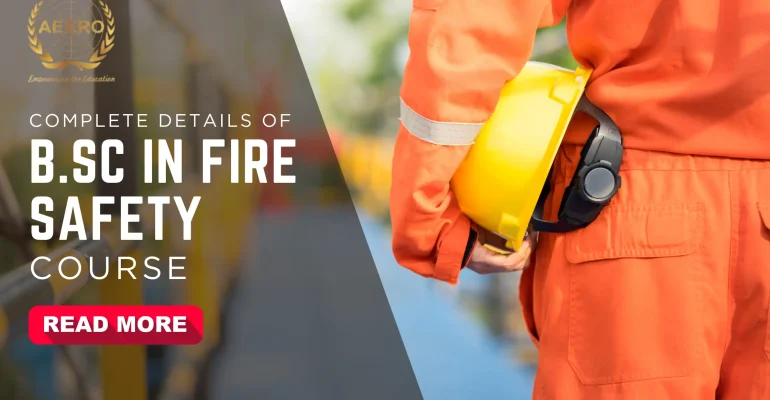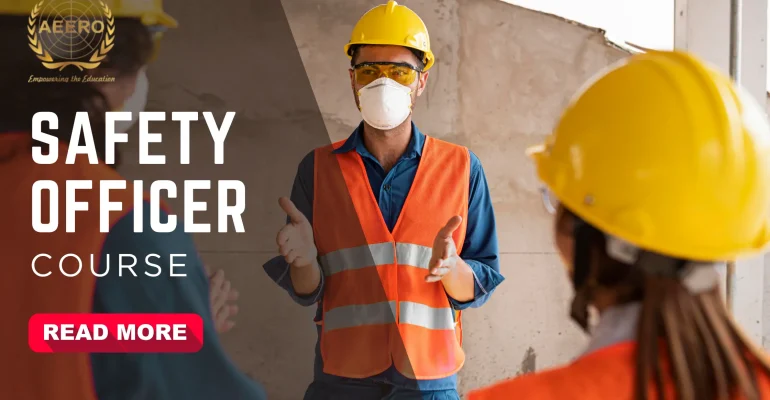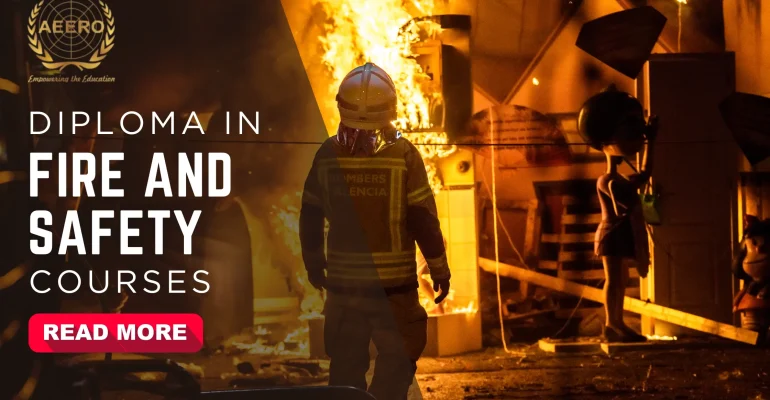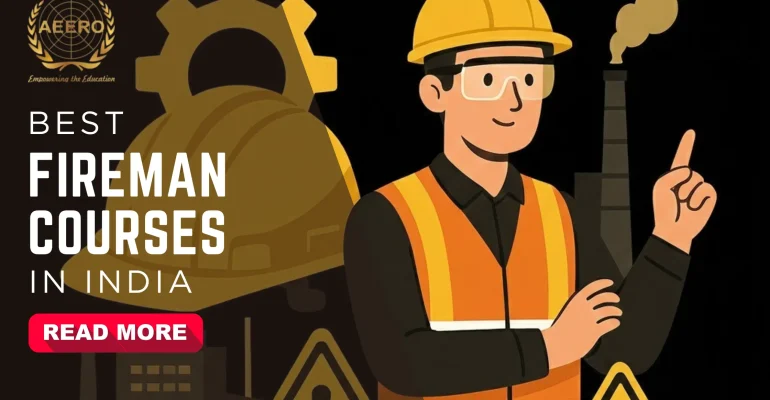Comprehensive Guide to Fire and Safety Courses in India
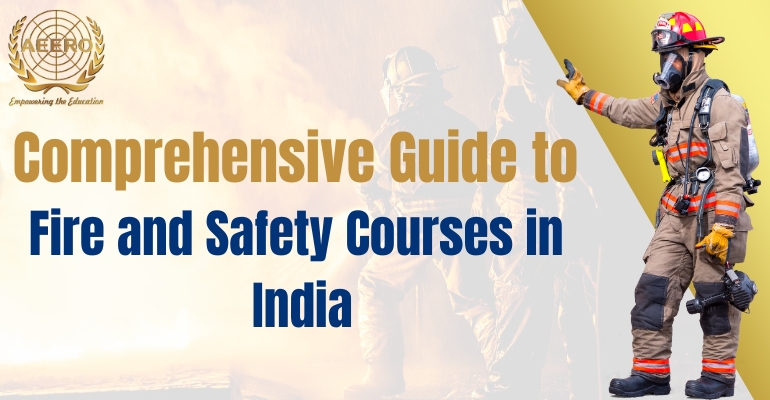
India is expanding quickly, let’s face it. There is a greater need to keep people safe, as there are more factories, buildings, and technology. Professionals in fire and safety can help with that. This guide is for anyone interested in this field or considering a career in it.
In today’s world, enrolling in a fire and safety course is more important than ever.
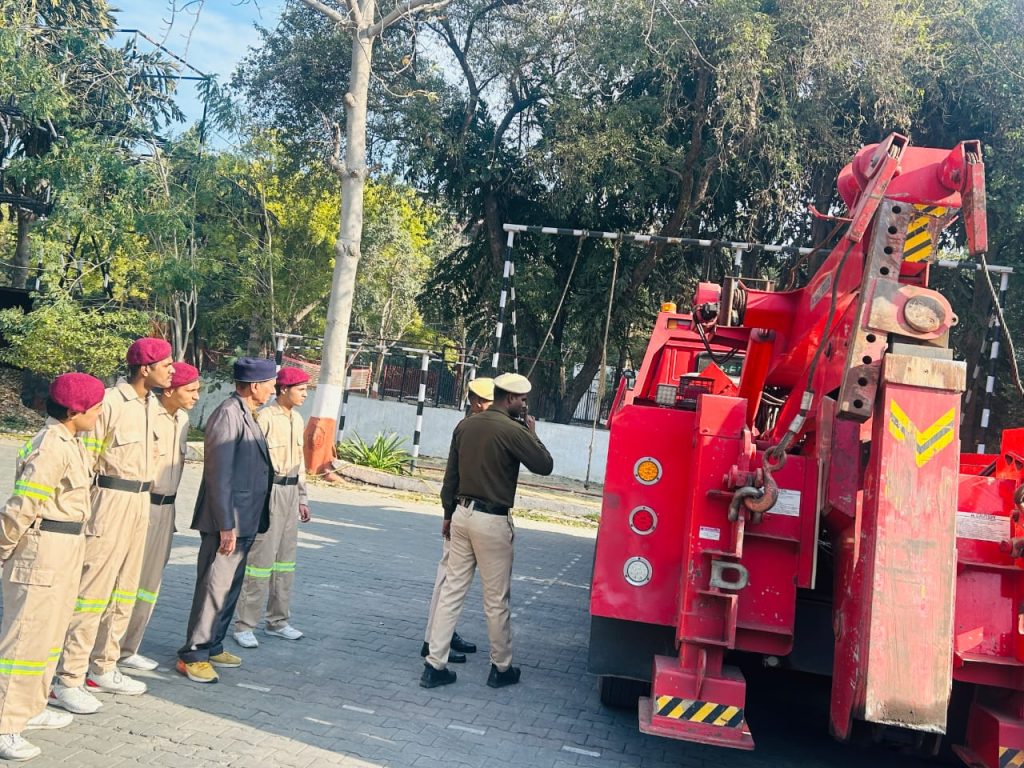
So, what is a fire and safety course exactly?
Completing a fire and safety course can open many doors in various industries.
Consider it a crash course in disaster prevention. These courses teach you how to respond to fire situations, ensure that buildings and workplaces are code compliant, rescue people, and follow safety procedures.
Think about the impact of a fire and safety course on your career trajectory.
The goal of these courses, which range from simple safety exercises to comprehensive diplomas, is to keep people and property safe. And have faith in me; in today’s world, that’s a big deal.
What Kind of Courses Can You Take?
A fire and safety course will also prepare you for emergencies effectively.
Many industries require professionals who have completed a fire and safety course.
This fire and safety course will enhance your understanding of critical safety protocols.
From novices to those seeking specialisation, India offers options for all. Here’s a brief summary:
With a fire and safety course, you can specialise in areas like hazardous materials.
Consider pursuing a fire and safety course to stand out in the job market.
1. Certificate Programs
Brief and to the point. Excellent for those who are just starting out or have dangerous jobs. You’ll learn the fundamentals, including how to conduct evacuation drills, provide first aid, and prevent fires.
2. Diploma in Fire Safety
This one’s more in-depth. You’ll dive into fire behaviour, how to manage industrial hazards, and workplace safety. It’s one of the most respected qualifications and can help you step into officer-level roles.
3. Post-Diploma/Advanced Diplomas
Already got some experience? These are for those who wish to go deeper—such as emphasising construction sites or chemical safety.
4. B.Sc. & M.Sc. degrees
Want to go all in? A few universities provide complete master’s and bachelor’s degrees. These lead to leadership positions in the sector.
Where Should You Study?
Picking the right institute matters—a lot. A solid institute gives you the tools, the training, and the connections. Here are some top picks:
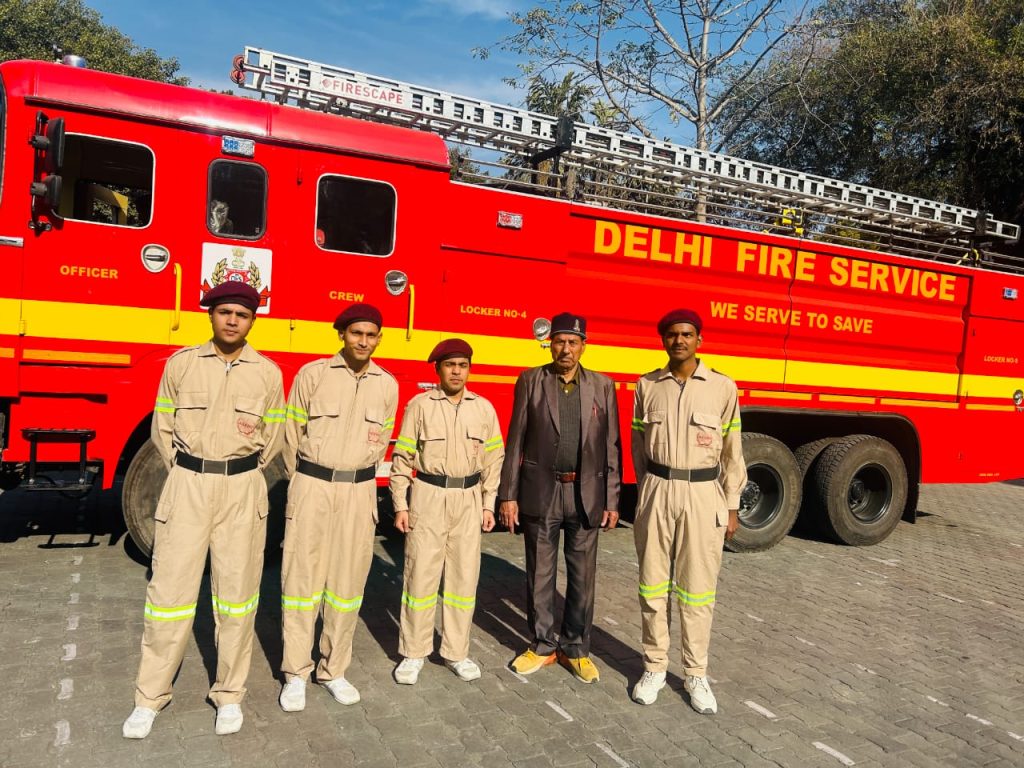
Institute of Fire Engineers (India)
AEERO (Aarav Educational & Employment Research Organization)
Safety Management Academy (SMA)
Indian Institute of Fire Engineering, Nagpur
These places offer hands-on training, real-life simulations, and often tie-ups with companies that can help you land a job.
What Can You Do After the Course?
After completing a fire and safety course, your career options become much more diverse.
Here’s where things get exciting. Once you’re certified, there are all kinds of jobs waiting:
Higher education in a fire and safety course can lead to senior roles.
- Safety Officer
Keep workplaces in line with safety laws, lead audits, and run training. - Fire Safety Supervisor
Be the go-to person for fire safety in factories, offices, or building sites. - HSE Officer (Health, Safety, Environment)
Focus not just on fires, but also on health and eco-safety. - Firefighter/Fireman
Be on the front lines with government services or big private firms. - Safety Manager
Lead the entire safety department and create company-wide safety plans.
Who Can Apply?
Most diploma programmes need you to have passed 10th or 12th grade. If you’re eyeing higher studies like a degree, you might need a science or engineering background.
Admissions? Pretty simple. Most places take students based on merit or direct application. Some might even test your physical fitness.
Where Will You Work?
- Oil & gas
- Manufacturing and automotive
- Airports and ports
- Hospitals and schools
- Government bodies
Basically, wherever there’s risk, there’s a need for safety experts.
Why Should You Care About This Field?
Let’s break it down:
- Steady Jobs – Safety isn’t optional. Companies have to hire people for it.
- Good Money – Especially if you work abroad (hello, Gulf countries!).
- Respect – You’re literally the person who keeps everyone safe.
- Travel Options – Certifications like NEBOSH or OSHA can land you international gigs.
- Career Growth – Start at the bottom, but you can move up to safety head or even consultant level.
How to Pick the Right Course or Institute
Before signing up, check a few boxes:
- Is the institute accredited?
- Does the course cover the latest safety laws?
- Do they offer hands-on training?
- What’s their job placement record?
- Do they have industry partnerships?
These things make a world of difference in how well you’re prepared.
What’s the Future Like for Fire and Safety Pros?
In one word: booming. As India builds smart cities and bigger infrastructure, demand for trained safety personnel is through the roof. More automation = more risks = more need for safety experts.
A diploma in fire safety or even a certificate from a good institute can be your ticket to a solid, future-proof career.
Final Thoughts
If you’re someone who cares about people, likes hands-on work, and wants a career that’s both stable and meaningful, fire and safety is worth a serious look.
Start with a good institute—like AEERO or any of the others we mentioned. Choose a course that fits your level. Ready to step up?
Completing a fire and safety course can make you a valuable asset to employers.
Make your mark in this field by starting with a fire and safety course.
With the growth of industries, a fire and safety course is more beneficial than ever.



